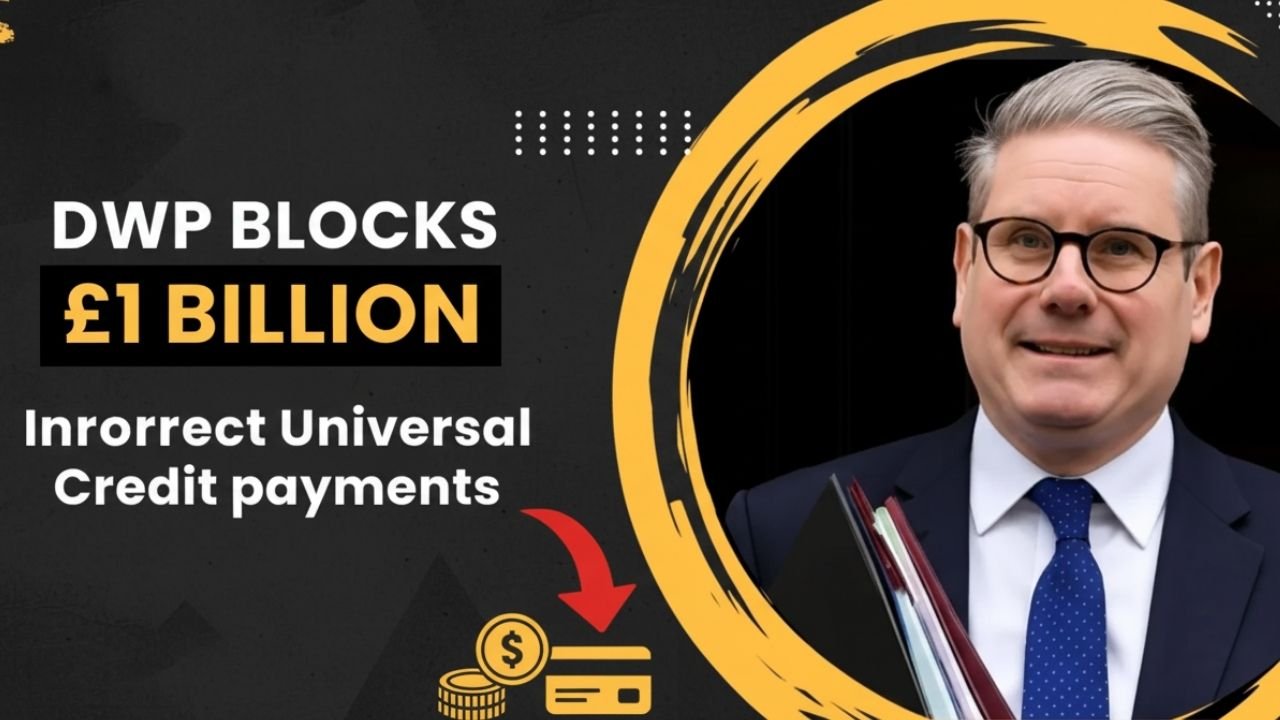The Department for Work and Pensions (DWP) has made headlines with a major win: stopping over £1 billion in Universal Credit overpayments in 2025. This milestone shows the UK’s commitment to a fairer, more efficient welfare system. But what does it mean for claimants and taxpayers? Let’s dive into the details, from how the DWP pulled it off to what it means for your benefits.
What Are Universal Credit Overpayments?
Universal Credit is a lifeline for millions in the UK, supporting people with low incomes, unemployment, or health challenges. Overpayments happen when someone gets more money than they’re entitled to, often due to unreported changes in income, living situations, or simple admin errors. These mistakes can lead to stressful repayment demands. By preventing £1 billion in overpayments, the DWP is saving public funds and sparing claimants unexpected debts.
Why Overpayments Matter
Overpayments aren’t just a headache for the government—they hit claimants hard too. Imagine getting a letter saying you owe thousands back because of an error. Preventing these issues upfront makes the system fairer and less stressful for everyone involved.
How Did the DWP Prevent £1 Billion in Overpayments?
The DWP’s success comes down to smarter technology and better teamwork. Here’s how they did it:
- Real-Time Data: By syncing with HM Revenue and Customs (HMRC), the DWP tracks claimants’ earnings instantly, adjusting payments before mistakes happen.
- AI and Analytics: Advanced tools spot unusual patterns, like sudden income spikes, to catch errors or fraud early.
- Fraud Checks: Stronger verification processes ensure claims are legit, targeting fraud without hassling honest claimants.
These upgrades mean fewer errors, faster fixes, and a more reliable welfare system.
Benefits for Taxpayers
Every penny of Universal Credit comes from public funds. Saving £1 billion means taxpayers’ money is being used wisely. These savings could fund better public services, support vulnerable groups, or ease pressure on the national budget. For working families, it’s reassuring to know their contributions are powering a fairer system.
How Claimants Are Affected
Worried that tighter controls might make it harder to get benefits? The DWP says the focus is on accuracy, not cutting access. By catching mistakes early, claimants avoid the shock of repayment demands or fraud accusations. The result? A smoother, more trustworthy Universal Credit experience.
Support for Vulnerable Claimants
The DWP is also working to protect groups like disabled people or those with irregular incomes. Clearer guidance, flexible repayment plans for existing overpayments, and better communication help ensure no one falls through the cracks.
The Tech Behind the Savings
Technology is the backbone of this achievement. Real-time data sharing with HMRC lets the DWP update payments as soon as a claimant’s situation changes. Artificial intelligence flags potential errors or fraud, while streamlined processes cut down on human mistakes. These tools don’t just save money—they make the system faster and fairer.
| Technology | How It Helps |
|---|---|
| Real-Time Data Sharing | Syncs with HMRC to track income changes |
| AI and Data Analytics | Spots errors or fraud early |
| Automated Verification | Reduces human error in claim processing |
Cracking Down on Fraud
Fraud costs the welfare system millions every year. The DWP’s new tools help catch things like fake identities or hidden earnings without unfairly targeting honest claimants. For the public, this means benefits go to those who genuinely need them, boosting trust in the system.
Collaboration Makes It Happen
The DWP didn’t do this alone. Partnerships with HMRC, local councils, and even private organizations provide a fuller picture of claimants’ finances. These data-sharing agreements ensure payments are based on accurate, up-to-date info, reducing errors and duplicates.
Universal Credit: A Quick Overview
Universal Credit replaced six older benefits with a single monthly payment to simplify the system and help people move into work. Despite its benefits, it’s faced criticism for delays and errors. The DWP’s £1 billion savings show progress in fixing these issues, making the system more reliable for millions.
Challenges to Watch
While £1 billion in savings is impressive, it’s not perfect. Some worry that AI-driven checks might flag innocent claimants by mistake, causing delays or stress. Others fear stricter fraud measures could feel intrusive. The DWP needs to balance efficiency with compassion to keep support accessible and fair.
What’s Next for Universal Credit?
Looking to 2026, the DWP plans to double down on tech upgrades, better claimant communication, and staff training. These steps aim to make Universal Credit even more responsive, cutting errors further while supporting claimants through life changes.
Tips for Claimants to Avoid Overpayments
Want to stay on the right side of Universal Credit? Here’s how to protect yourself:
- Report Changes Fast: Update the DWP about new jobs, income changes, or household shifts immediately.
- Check Statements: Review your payment details regularly for accuracy.
- Get Help: Reach out to Citizens Advice for free support navigating Universal Credit.
Taking these steps can help you avoid overpayments and keep your benefits on track.
Public and Expert Reactions
The £1 billion milestone has sparked mixed feelings. Many applaud the DWP for protecting taxpayer money and boosting efficiency. However, some claimants worry about stricter checks affecting their payments. Experts say transparency—clearly explaining how savings are made—will be key to keeping public trust.
Why This Matters for the UK
A strong welfare system is about fairness: taxpayers fund it, and claimants rely on it. Preventing overpayments ensures money goes where it’s needed most, strengthening the system for everyone. It also eases political debates about welfare spending, proving the system can be both compassionate and responsible.
FAQs About Universal Credit Overpayments
What causes Universal Credit overpayments?
Overpayments happen due to unreported changes in income, household circumstances, or DWP errors. Prompt reporting can prevent them.
Will these changes make it harder to get benefits?
No, the DWP focuses on accuracy, not restricting access. Honest claimants should see smoother payments.
How can I report changes to avoid overpayments?
Log into your Universal Credit account online or call the DWP helpline to report changes in income or circumstances.
What happens if I’m overpaid?
You may need to repay the extra amount, but the DWP offers flexible repayment plans. Contact them to discuss options.
How does fraud prevention affect honest claimants?
The DWP targets genuine fraud, not honest claimants. Improved systems aim to reduce errors without delays.
Final Thoughts
The DWP’s £1 billion in prevented Universal Credit overpayments is a big step toward a fairer, more efficient welfare system. By leveraging technology, cracking down on fraud, and working with other agencies, the DWP is saving taxpayer money while making life easier for claimants. Challenges remain, but these changes show a commitment to getting it right. If you’re a Universal Credit claimant, stay proactive—report changes quickly and check your payments to avoid surprises.
For more help, visit the DWP’s Universal Credit page or contact Citizens Advice for free guidance.




